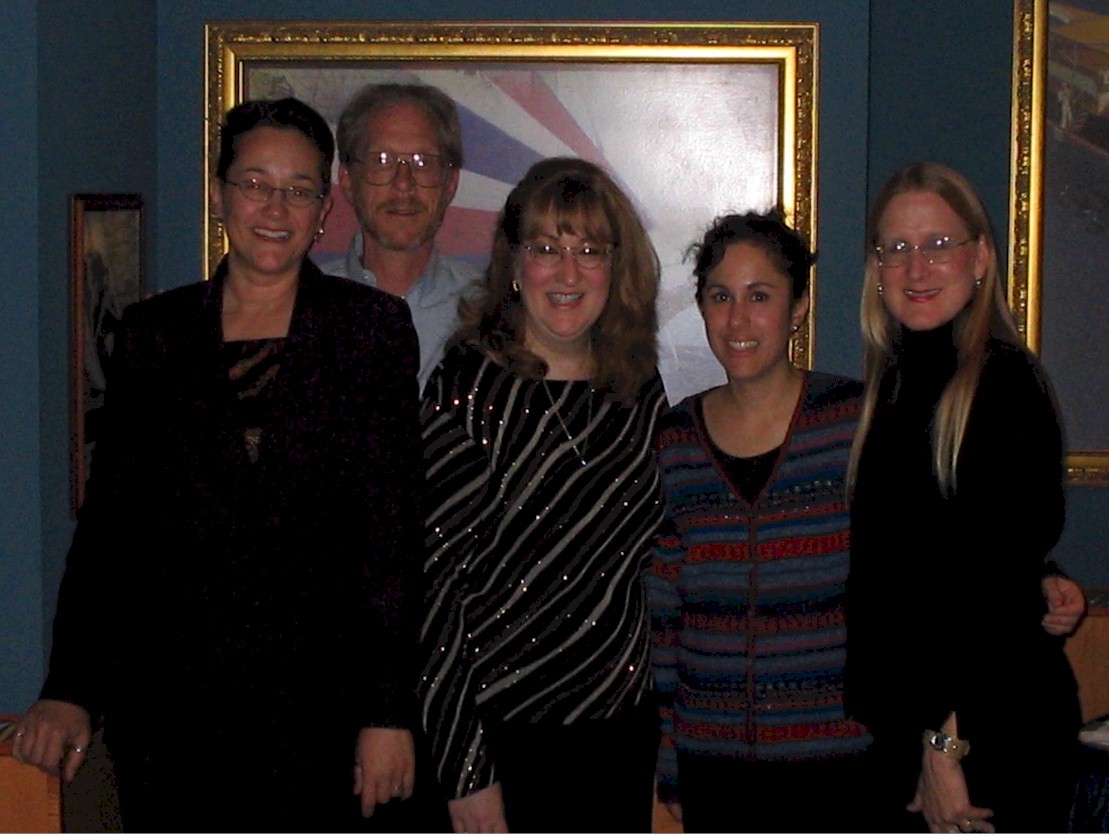
(ARCHIVES)
BREAKING NEWS
PRESS INFO
THE GRAPEVINE
RESOURCES
YAHOO!GROUP
(SUBSCRIBE)
MESSAGE BOARD
FAQ
ABOUT OCLB
IDEA Reauthorization
Dear OCLB Readers,
The OCLB Web pages are going through some transitions and updates. So, while the updates are being prepared for future postings, here are some of the IDEA 2004 resources we've been looking at lately. In addition to these helpful IDEA 2004 targeted resources listed below, we're also in the habit of keeping our eyes on the TASH, COPAA, NDSS, Wrightslaw, Reed Martin, and NASDSE Web sites for direction.
Just an FYI.
We also need to watch what is going on in our states as IDEA 2004 rolls out.
Thank you for all of the work that you do for our children.
The OCLB Team
Sandy Strassman-Alperstein, Shari Krishnan, Debi Lewis, and Calvin & Tricia Luker
### START OF LIST ###
http://www.nichcy.org/reauth/
NICHCY is pleased to offer information on the IDEA, our nationís special
education law. For those who are involved with or working on behalf of
children with disabilities, the IDEA is a very important piece of
legislation. It was amended (reauthorized) in December 2004, and lots has
been, and will be, happening. Read all about the latest news here.
http://www.wrightslaw.com/idea/index.htm
Parents, advocates, educators, and attorneys come to IDEA 2004 at Wrightslaw for
reliable, accurate information about IDEA issues: child find, eligibility,
evaluations, reevaluations, high stakes testing, IEPs, accommodations,
alternate assessments, educational placements, transition, parental rights,
and more.
http://www.ed.gov/policy/speced/guid/idea/idea2004.html
News and information from the U.S. Department of Education, Office of
Special Education and Rehabilitative Services.
http://www.nectac.org/idea/idea2004.asp
The Office of Special Education and Rehabilitative Services has released a
series of documents that review the statutory changes in IDEA 2004. We also
offer links to summaries of changes in the law prepared by various groups.
http://www.familiestogetherinc.org/ideareauthorizationinfo.htm
IDEA 2004 information from Families Together, Inc.
http://www.directionservice.org/cadre/stat_index_ideia.cfm
CADRE, The National Center on Dispute Resolution, is funded by the United
States Department of Education, Office of Special Education Programs. CADRE
uses advanced technology as well as traditional means to provide technical
assistance to state departments of education on implementation of the
mediation requirements under IDEA '97. CADRE also supports parents,
educators and administrators to benefit from the full continuum of dispute
resolution options that can prevent and resolve conflict and ultimately lead
to informed partnerships that focus on results for children and youth.
http://www.ideapartnership.org/topicdetail.cfm?topicid=31
The IDEA Partnership is dedicated to improving outcomes for students and
youth with disabilities by joining state agencies and stakeholders through
shared work and learning.
http://thomas.loc.gov/cgi-bin/query/z?c108:h.1350.enr:
HR1350. Individuals with Disabilities Education Improvement Act of 2004
(Enrolled
as Agreed to or Passed by Both House and Senate)
http://www.bridges4kids.org/IDEA.html
A non-profit parent organization providing a comprehensive system of
information and referral for parents and professionals working with children
from birth through transition to adult life.
http://www.aph.org/advisory/nasdse.html
How does the new Individuals with Disabilities Education Improvement Act (IDEIA)
differ from IDEA '97? The National Association of State Directors of Special
Education (NASDSE) has created a side-by-side document that compares the two
laws in The Individuals with Disabilities Education Act: A Comparison of P.L.
105-17 (IDEA '97) to H.R. 1350 as passed by Congress on November 19, 2004.
http://www.taalliance.org/idea/index.htm
The Technical Assistance Alliance for Parent Centers is an innovative
project that supports a unified technical assistance system for the purpose
of developing, assisting and coordinating Parent Training and Information
Projects and Community Parent Resource Centers under the Individuals with
Disabilities Education Act (IDEA).
http://www.ndss.org/content.cfm?fuseaction=NDSS.article&article=1317
The following testimony was given by Ricki Sabia, Associate Director of the
NDSS Policy Center, on July 12th, 2005 at a public meeting in Washington,
D.C. regarding the proposed regulations for IDEA 2004.
http://www.advocacyinstitute.org/
Following the recent enactment of the Individuals with Disabilities
Education Improvement Act of 2004 (IDEA 2004), states will begin the process
of updating their special education laws and regulations to correspond to
new federal requirements. You can have a positive impact on this important
process by working to preserve some critical aspects of IDEA lost in the
recent reauthorization.
http://www.neighborhoodlaw.org/page/194648;cat_id=258
National Committee Of Parents And Advocates Organized To Protect IDEA,
12/14/2004, By Kathleen Boundy.
http://www.cec.sped.org/pp/docs/CRSAnalysisofNewIDEAPL108-446.pdf
The Congressional Research Service, the part of the Library of Congress that
serves as the research arm of Congress, has published an analysis of the new
IDEA law. Written by Richard N. Apling, Specialist in Social Legislation,
Domestic Social Policy Division; and Nancy Lee Jones, Legislative Attorney,
American Law Division. One page summary provided. Available in PDF (47
pages, 203 KB).
http://fape.org/idea/2004/summary.htm
This is a summary of some of the most critical changes affecting children with disabilities and their families in IDEA 2004, concentrating on the IEP process, due process and the discipline provisions. How these changes affect our children will depend, at least in part, on how the U.S. Department of Education interprets them through policies and regulations and how they are implemented at the state, district and school level. Most of these changes will be effective as of July 1, 2005.
### END OF LIST ###

The OCLB Team: Debi Lewis, Calvin and Tricia Luker, Sandy Alperstein, and
Shari Krishnan
This page last updated on Wednesday 26 October 2005
